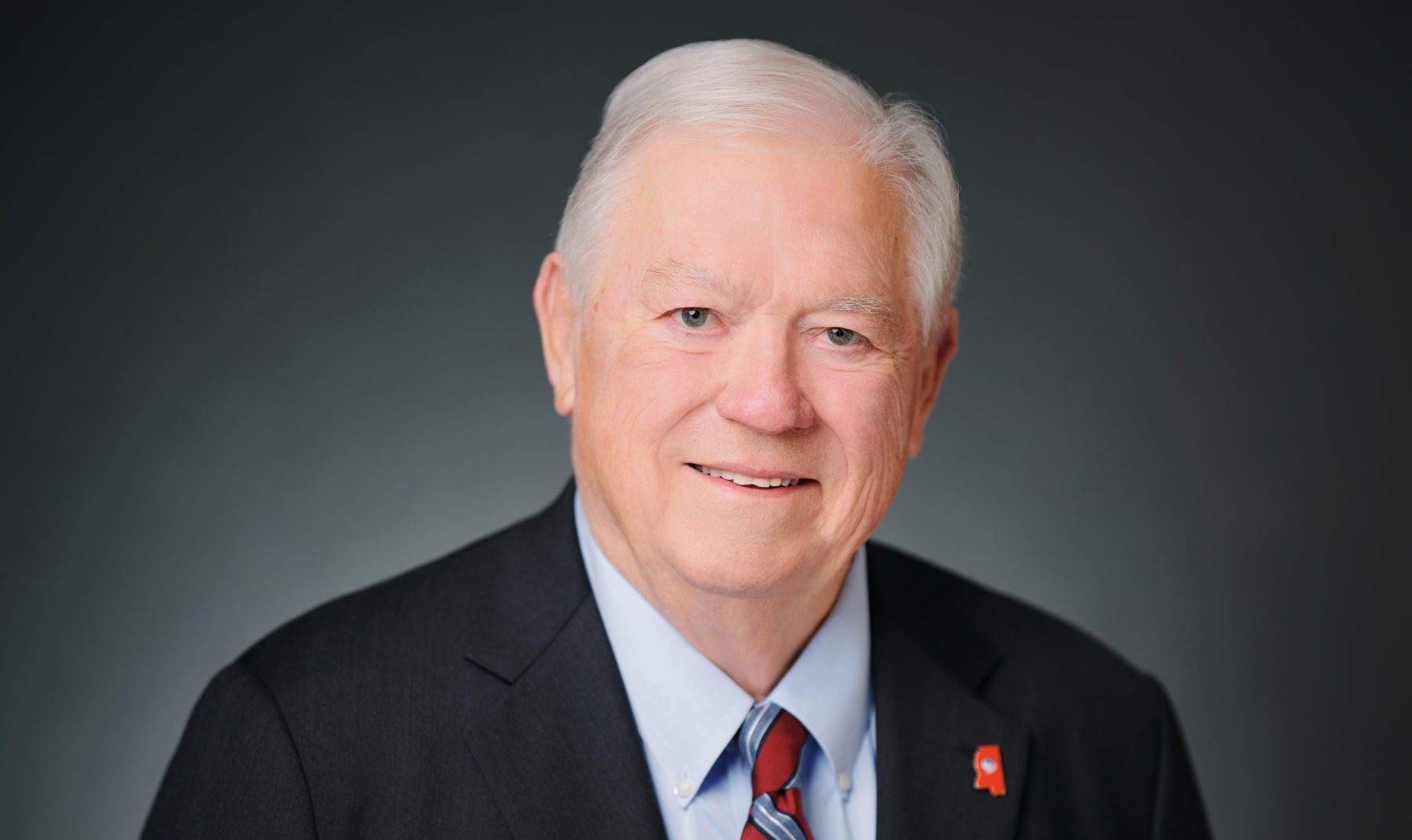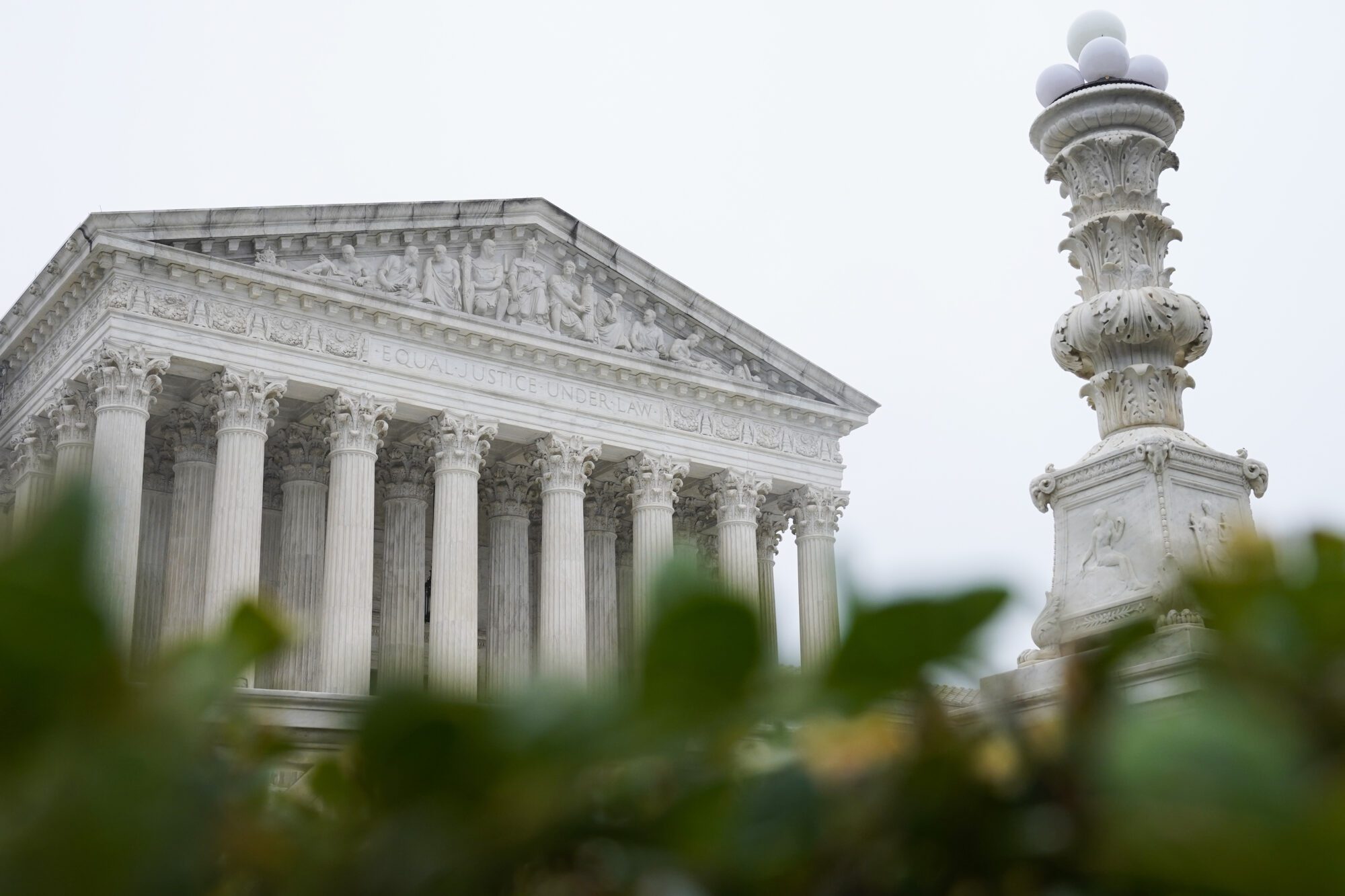
FILE - Clarke Reed, who was chairman of the Mississippi Republican Party from 1966-76, discusses the contested 1976 Republican National Convention in Greenville, Miss., on April 6, 2016. (AP Photo/Rogelio V. Solis, File)
- Former Gov. Haley Barbour says Clarke Reed loved politics and was good at it. “He persisted right to the end, ever the optimist.”
Clarke T. Reed, a major leader in Mississippi political history and for years in national Republican affairs as well, died Sunday evening at his home in Greenville.
From the late sixties through the Gerald Ford administration, he was Mississippi Republican State Chairman (for the years 1966-1976), but Reed remained a wise, respected and influential voice not only in state politics but all the way to the White House.
Clarke gave me my first job, when I dropped out of Ole Miss for the fall of my senior year to run 30 counties in Mississippi for the Nixon campaign against Hubert Humphrey and George Wallace. Wallace won the state, and Nixon got only 14 percent.
During the campaign I saw the first political poll I’d ever seen. In Mississippi, only 6 percent of people identified as Republicans. I used to say that in Mississippi in 1968 to be a Republican you had to be an optimist.
Clarke and the other leaders of the party were optimists back then. At that time, Mississippi had no GOP state elected officials, no GOP federal elected officials, no GOP legislators, no GOP county elected officials and only three GOP mayors in the whole state — Columbus, Laurel and Yazoo City.
Clarke picked me out for the Nixon campaign because my eldest brother, Jeppie, had been elected Mayor of Yazoo City in the spring of 1968.
In 1969, Clarke asked me to be the State Director of the 1970 Decennial Census. Even though I was only 22 years old, he got the Nixon White House to appoint me to this patronage position.
Clarke knew the 1972 election presented an opportunity for the GOP to make breakthroughs in our state. Party leaders recruited two candidates for Congress in the then-4th and 5th Congressional districts: Thad Cochran and Trent Lott.
Nixon won a landslide re-election, and Lott and Cochran won the first of what would be decades of consecutive races, first in their respective House districts and then as US Senators.
In 1972 another GOP candidate, Gil Carmichael, a Meridian car dealer, ran a strong race against long time Democrat Senator Jim Eastland.
The state Republican Party, led by Clarke and other optimists like Billy Mounger, Virginia Hooper and Victor Mavar, strongly promoted and supported these up-and-coming political stars. The GOP base greatly expanded, leading to Cochran’s election to the Senate in 1978.
In the interim Clarke became increasingly recognized as a national leader within the Republican Party.
In 1976 the Mississippi GOP delegation to the Party’s national convention was the largest uncommitted delegation in that incredibly close nomination contest between President Gerald Ford and Governor Ronald Reagan.
Clarke sided with Ford, who won the Mississippi delegation, but lost to Jimmy Carter in November. He ended his ten-year tenure as Mississippi GOP Chairman in 1976, but remained very active in the years to come, nationally as well as in the state.
Although Clarke didn’t support Reagan in the 1976 nomination contest, he said many times over the ensuing years that Reagan was the best President in his lifetime. And in so many ways, Clarke was a conservative in the Ronald Reagan mold.
He was also a very successful entrepreneur in the agriculture world. He and his partner Barthell Joseph, a classmate of Clarke’s in military school, used Belgian technology to protect crops and airports from predatory and dangerous birds. The New York Times called him “one of the ablest businessmen in the South.”
In 1957 Clarke married Julia Brooks of Nashville, who survives him. They had three children: Julia Evans Reed, a writer (1960-2020); Reynolds Crews Reed (1968-2019); and Clarke Thomas Reed Jr., who also survives him. He is also survived by two grandchildren, a nephew and two great grandchildren.
Clarke loved politics and was good at it. He also enjoyed political people. He was close to President Nixon, but also to journalists like William Buckley Jr., and Bob Novak, as well as Hodding Carter III, his Democrat friend from Greenville who worked in the Jimmy Carter White House.
He was friends with Mississippi’s first Republican Governor since Reconstruction, Kirk Fordice, who was elected in 1991. Fordice had served on the state GOP committee with Clarke.
He kept trying to build the party and elect Republicans, starting in 1968 when there was virtually none in office through the Reagan years, through the Bush presidents, and on to Donald Trump. He saw the GOP in Mississippi go from virtually no elected offices to majorities at every level.
He persisted right to the end, ever the optimist.










